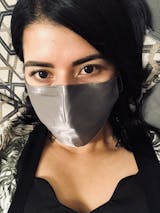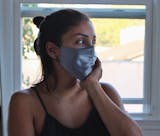Our planet has been going through a noticeable shift over the years. It’s become more evident as natural disasters are more frequent, the seasons are starting later, and the temperatures are becoming more extreme.
Not only that, but the pollution we are finding in our oceans and in our landscapes is filling up faster than we can manage it. It’s become very apparent that if we want to live in a clean, healthy environment in the future, our habits need to change—and fast.
The beauty industry is known for it’s less-than-eco-friendly practices. From one of the most wasteful industries when it comes to natural resources, like water usage in percussion and formulations; to the waste it produces in their packaging. Something’s gotta give.
We’ll talk about six simple sustainable swaps for your bathroom, and we’ll also discuss other ways you can be more eco-friendly at home.
Six Swaps
It has to be said that, when we used to buy items, most of us didn’t always think about how something was going to impact the environment. When innovative products were (and are) invented for the market, humans were primarily looking for the most convenient and effective option to make our lives better and easier, with the environmental impact being a secondary thought—or not at all, in most cases.
But today, most of us, or at least a large percentage, know better. But that doesn’t mean that most of us do better. So, as a species, let’s do better together. Here are six common bathroom products we all use at home, and the damage they are doing to our planet.
1. Sheet Masks
Sheet masks were made popular by the Korean skincare industry. According to statistics website Statista, in 2018, the global sheet mask market was estimated to be valued at about 282.8 million USD and is forecasted to reach 551.3 million dollars by 2026. Now that’s a lot of pollution.
The premise behind using a sheet mask over not using one is to stop the products from drying out on your skin. When some products dry out, they don’t penetrate the skin properly. Sheet masks were also originally designed to whiten and hydrate the skin.
But the issues we’re now seeing with sheet masks is:
- Sheet masks are usually made from synthetic materials, making them impossible to break down in landfill.
- Even sheet masks made from natural fibres need to be manufactured, thus using up precious resources, like water.
- Some sheet masks contain steroids (particularly some Chinese brands), which give fast results, but after only 2 weeks your skin can develop a dependency. This can cause skin allergies, inflammation, pimples, and expansion of capillaries once you stop using it.
- The packaging is also normally made from non-eco materials, as they need to keep the masks moist, so they’re usually formulated with plastic.
Use Instead: Traditional mud masks. These are just as effective on the skin as sheet masks, and they don’t add extra pollution to our environment. To keep them moist, spritz with water.
Our Pick: Earthwise Beauty’s Catharsis Face Mask.
This face mask does it all from healing, to hydrating, to firming, and invigorating the skin. It contains a powerhouse blend of active ingredients: finely milled herbs and green algae.
Why we love it: For starters, it’s waterless, which means it doesn’t use water in the formulation. It contains aloe powder, which is an incredibly effective skin soother, protector, and moisturizer. Neem is added for it’s antimicrobial and healing properties—great for acne-prone skin. While spirulina and chlorella algae detoxify and cleanse deeply, while firming the skin, and reducing signs of aging.
2. Cotton Pads (rounds) and Cotton Wool
These items are one of the most used items in the bathroom. From removing makeup, to applying toners, these single-use items are detrimental to our environment on a number of levels, and are not the best option for our skincare.
Why is this so?
- Many cotton wool brands are actually not made from cotton at all—or at least not 100%. They are made from synthetic fibres, like polyester, that are usually cheaper than cotton and cannot be recycled, and when tossed in landfill, take hundreds of years to break down.
- For the 100% cotton pads, many are not made using sustainable cotton. The cotton industry in itself causes mountains of pollution, from the chemicals used to manufacture cotton, polluting waterways and landscapes, to the amount of water wasted.
- Cotton soaks up our skincare. We need to use twice as much product just to use it effectively.
Use Instead: For toners, why not just spritz on to the skin, or use your clean fingertips instead? Your toners will last longer, and it works the same way. For other products, invest in some reusable bamboo rounds.
Our Pick: Earthling Reusable Bamboo Cotton Rounds
Why we love them: A bag of single-use cotton rounds will cost anywhere from $1 to $6, but you’ll always need to buy more. For $18, you can reuse these rounds for an infinite number of times, just pop them into their wash bag and throw them in with your laundry. They’re made from 98% bamboo terry, 2% cotton. Earthling are also fellow one percenters for the planet.
3. Makeup Wipes
These are arguably the worst contenders on this list. The wet wipe was invented by Arthur Julius back in the 1950s as a cleansing hand wipe. This convenient innovation was then expanded into other industries—baby wipes, personal hygiene, toilet wet wipes, industrial wipes, you name it.
Ninety percent of wet wipes on the market are produced from non woven fabrics, polyester, and plastic fibers. The problem is that many people will still flush these down the toilet, which causes a huge issue at sewage and waste plants.
Dubbed “fatbergs” by sewage plant workers, wet wipes bond with fat particles, creating little clumpy islands of bacteria, which pose a huge health issue for the environment and wildlife.
If that isn’t alarming enough, the ingredients typically formulated in wet wipes normally contain harsh and toxic ingredients, such as phthalates, triclosan, and parabens, which are known to be endocrine disruptors and carcinogens, plus other ingredients like fragrances, which can irritate the skin.
Use Instead: Cleansing Oils. These are going to keep the skin hydrated and nourished, while gently melting off makeup and debris.
Our Pick: M.S.Skincare’s Silk Premier Cleansing Oil
Why we love it: It is formulated with Frankincense oil for healing, balancing, and brightening; Black Cumin Oil to clear congested skin; and Vitamin E for nourishment. It also comes in a glass bottle, one of the most sustainable materials available.
4. Cotton Tips
Another incredibly wasteful item is the old fashioned cotton tip. Made from a plastic stick with cotton ends, as the name suggests, these items may be small, but they have become one of the most problematic items for our environment.
The cotton, as mentioned earlier, is often not sourced sustainably, and is usually a blend of cotton and synthetic materials. While the plastic stem ends up in our oceans and landscapes, and will never break down.
Use Instead: You can now get paper-stemmed cotton tips, but these are still not as eco-friendly. The stems are paper, but they still take years to break down. They also require resources—paper, water, electricity—to be manufactured. So the best option is to use reusable swabs.
Our Pick: Naked Swab.
Why we love it: Made from 100% bamboo and medical grade silicone, these swabs are completely reusable, eliminating the need to buy single-use tips. Bamboo is one of the planet's most eco-friendly materials, bamboo grows quickly, without pesticides, fertilizers, and is naturally renewable.
5. Disposable Plastic Spoolies
These plastic wands are used excessively in the makeup industry to apply mascara. Understandably, for makeup artists, it can be difficult to navigate products that are in line with industry hygiene practices, that are also eco-friendly. But for many people who do not work in the industry, disposable spoolies are really unnecessary. They end up in landfills, and never break down.
Makeup Artists Use Instead: Reusable spoolies that are not made from plastic. I couldn’t find any that were 100% plastic-free, but I found some that were 95% plastic-free.
Our Pick: West Bar Co. Bamboo spoolies
Why we like them: The handles are made from 100% compostable bamboo. They are also sturdy, so you can clean and reuse them a number of times before you need to discard them. Or you can send used wands off to Wands for Wildlife.
Non-Makeup Artists Use Instead: Zero-waste mascara. Do we really need to use spoolies if we’re just using our own personal mascara?
Our Pick: Izzy Zero Waste Mascara
Why we love it: It’s a subscription model for refillable mascara, and comes in a sterilized stainless steel tube. Every 3 months you send it back and receive a new tube of mascara. Wands are recycled on site using recycled water, and the company is carbon neutral certified. What’s not to love?
6. Plastic Shower Pouff
Loofahs are used by most of us in the shower to give us that luxurious lather, and to exfoliate our skin. But plastic pouffs are incredibly detrimental to our planet, and to our health.
Firstly, the plastic can easily break off and be washed down our drains and into our waterways, creating microplastics.
Secondly, we might feel like the pouff is exfoliating our skin, but in reality, it can be scratching our skin’s surface, which can damage the skin’s microbiome, especially if you scrub hard, or use harsh cleansers.
Thirdly, wet pouffs are perfect environments for bacteria to grow and thrive. Not the best way to get clean, is it?
Use Instead: Natural loofahs or 100% bamboo cloths.
Our Pick: Natural loofah from Etee
Why we like them: Natural loofahs are made using the skeleton from cucumber-like plants. The plant is hung up to dry out, and you’re left with the loofah. You can’t get any more natural than that.
These are just six common items you can start swapping out today, but when you think about the items you use on a daily basis, how many more of them could you swap out for more sustainable ones? We challenge you to start making small changes. Every little change counts.
Emma Masotti is an Australian now living in Austin, TX, and has been a trained esthetician for over 15 years. She is a sustainable skincare writer, educating and building awareness around proper skin health that doesn’t cost the earth.
Some of the products promoted in our blog are from our online store. Many others are brands we have researched and found to be great examples of sustainable, ethical, and innovative brands in their field, and we don't make any profit from mentioning them in our blog. #CollaborationOverCompetition










